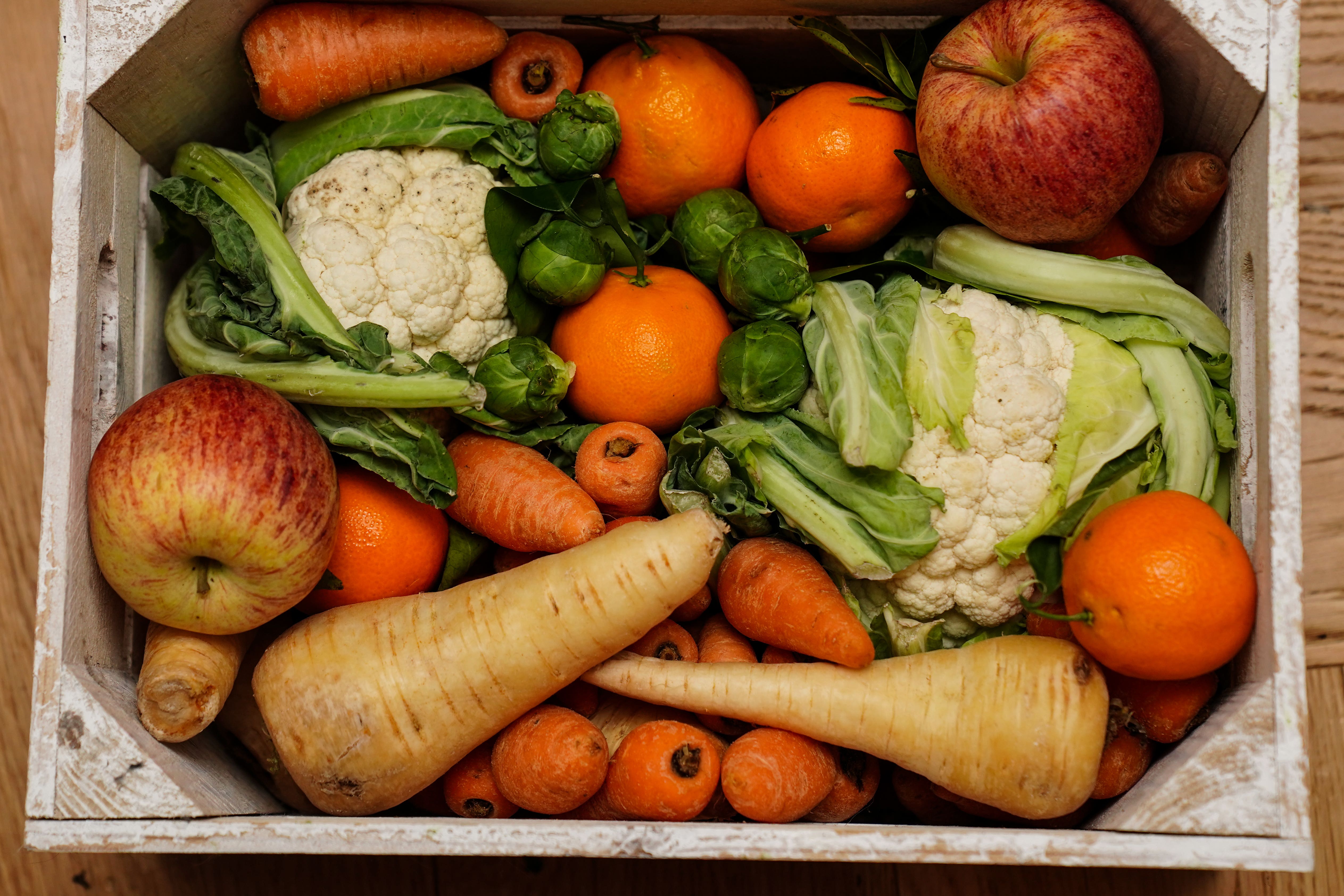A vegan diet can reduce your biological age, new study finds
The findings are based on a small study of 21 pairs of identical twins

Your support helps us to tell the story
From reproductive rights to climate change to Big Tech, The Independent is on the ground when the story is developing. Whether it's investigating the financials of Elon Musk's pro-Trump PAC or producing our latest documentary, 'The A Word', which shines a light on the American women fighting for reproductive rights, we know how important it is to parse out the facts from the messaging.
At such a critical moment in US history, we need reporters on the ground. Your donation allows us to keep sending journalists to speak to both sides of the story.
The Independent is trusted by Americans across the entire political spectrum. And unlike many other quality news outlets, we choose not to lock Americans out of our reporting and analysis with paywalls. We believe quality journalism should be available to everyone, paid for by those who can afford it.
Your support makes all the difference.Scientists have found that a vegan diet may be the solution to fighting old age.
A plant-based diet may reduce a person’s biological age, the new research suggests.
After eight weeks, there were also decreases in the ages of the heart, hormone, liver, and inflammatory and metabolic systems, the study found. These changes were not seen in those whose diet included meat, eggs, and dairy.
Those who ate a vegan diet also lost two kilogrammes more on average than those who ate did not, due to them consuming 200 fewer calories through the meals provided during the initial four weeks of the study.
According to the experts, the weight loss could have contributed to the observed differences in biological age between both groups.
Some experts suggest that, long-term, a vegan diet may result in nutritional deficiencies and may not suit all ages, while others say the differences could have been down to the weight loss.
The findings are based on a small study of 21 pairs of identical twins aged 39, half of whom ate a vegan diet, while the other sibling ate an omnivorous diet.
By the end of the study, the researchers observed decreases in biological age estimations based on levels of DNA methylation – a type of chemical modification of DNA that is used to estimate biological age.
Biological aging refers to the decline in functioning of tissues and cells in the body, as opposed to chronological age.
Previous research has reported that increased DNA methylation levels are associated with aging.
However, Varun Dwaraka, of epigenetic testing company TruDiagnostic Inc, and Christopher Gardner of Stanford University, California, and colleagues, said it is unclear how much the differences between the pairs can be attributed to the differences in diet.

Further research is needed to investigate the relationship between diet, weight and aging, in addition to the long-term effects of vegan diets, they add.
Tom Sanders, Professor emeritus of Nutrition and Dietetics, King’s College London (KCL), who was not involved in the study, said the research found some difference in terms of aging for vegans, but does not consider the fact that vitamin and mineral deficiencies often take years to appear.
He added that research also suggests a vegan diet may not be good for the health of older people.
Prof Sanders said: “Although observational studies indicate that vegan diets may have favourable effects on health in middle age (such as a lower risk of cardiovascular disease and type 2 diabetes), this is not the case in older vegans who seem more likely to suffer from muscle loss, low bone density and neurological disorders which have a significant impact on the quality of life.
“Indeed, life expectancy does not differ in vegans compared with those who select mixed diets.”
Dr Duane Mellor, dietitian and spokesman for British Dietetic Association, said that although the study compared a vegan diet to an omnivorous diet, these diets were not entirely matched in terms of calories.
He explained: “It is possible that a reduction in energy intake could potentially have altered how the participants’ DNA was changed.”
Dr Mellor added that the vegan group were asked to eat twice the number of portions of vegetables, more fruit and more legumes, nuts and seeds than the omnivore group, which also could in part explain the differences reported.
The findings are published in the BMC Medicine journal.